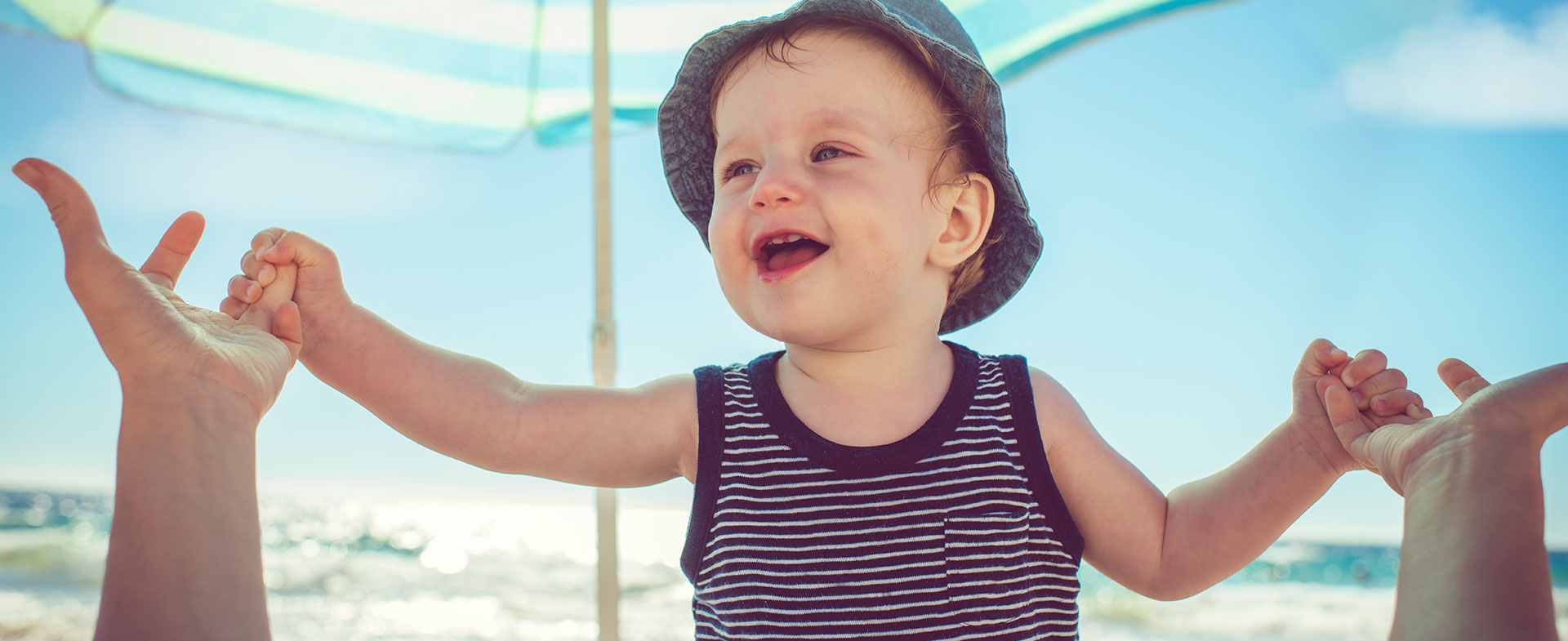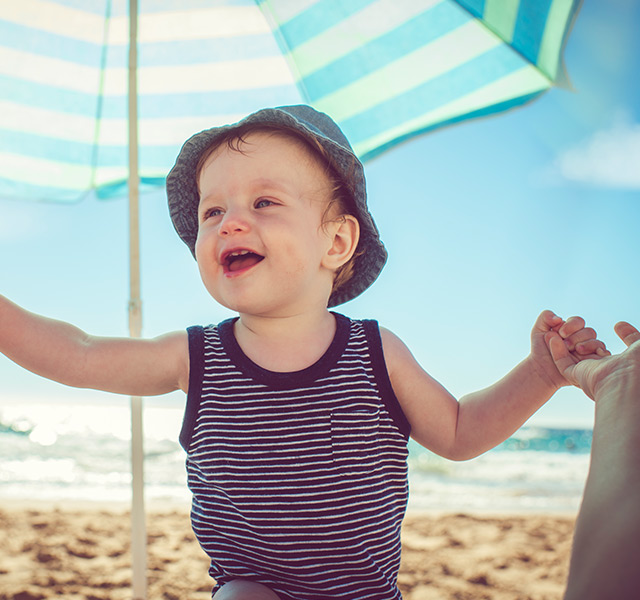It’s often said that babies can’t be outside in hot weather because they can’t sweat. This, however, isn’t completely accurate: babies can sweat, a little bit.
“There are two types of sweat glands, apocrine and eccrine glands,” says Jordan Kridler, M.D., a pediatrician with Henry Ford Health. “Babies are born with both of these glands, although they're not fully functional. Eccrine glands start to form during the fourth to fifth month of gestation: first on the palms of the hands and soles of the feet. Eventually, they cover almost the entire body, but they're not all completely active when a baby is born. When they’re newborns, the most active eccrine sweat glands are on their forehead, which is why parents often say their newborn's forehead feels sweaty.”
Eccrine glands are odorless and open directly onto the skin’s surface, while apocrine glands cause body odor and open into the hair follicle. Apocrine glands are not activated until the hormonal changes of puberty.
So babies can sweat, but not as much as adults. This matters—especially when it comes to heat—because the main purpose of sweat is to control body temperature and cool it down.
“Sweat takes heat from the body, evaporates it and turns it into gas to help keep you from overheating,” Dr. Kridler explains. If babies can’t sweat as much as adults, then, they’re more likely to overheat.
Babies And Heat: When To Keep Them Inside
Babies shouldn’t be outside if the heat index is equal to or above 90 degrees Fahrenheit, says Dr. Kridler.
“There’s a part of the brain called the hypothalamus that tells your body you’re too hot and makes you start sweating,” she says. “It does the same if you’re too cold—it tells your body to start shivering to warm you up. But a baby’s body surface is about three times greater than an adult’s compared to the weight of their body, so that's another reason why babies can overheat rapidly--and lose heat rapidly.”
Plus, babies can’t tell you when they’re too hot, so it’s important to be vigilant. Symptoms of overheating include:
- Lethargy and unresponsiveness
- A red face and skin that’s warm to the touch
- Skin and lips that look dehydrated
- A rapid heart rate
- Having a fever but not sweating
- Vomiting
- Dizziness
- Confusion
Keeping Babies Out Of Direct Sunlight
It’s not just extreme heat that can be dangerous for babies, but the sun can be detrimental to their sensitive skin as well. And before six months old, it’s recommended that babies don’t wear sunscreen.
“This is because sunscreens haven’t been tested in babies younger than six months old,” says Dr. Kridler. “Also, babies that young aren’t able to excrete the chemicals in sunscreen, like kids and adults can, so they would absorb it.”
Whether or not they’re wearing sunscreen, Dr. Kridler recommends additional ways to keep babies cool and out of direct sunlight:
- Use beach umbrellas and put them in baby tents while outside.
- Cover their stroller with a see-through, UV-protective covering.
- Use mesh window shades on hot, sunny days while in the car.
- Dress them in light, breathable UV-protective clothing.
- Throw a cute sunhat and baby sunglasses on them—but no guarantees they won’t try to pull them off!
To find a pediatrician at Henry Ford, visit henryford.com or call 1-800-436-7936.
Dr. Jordan Kridler is a board-certified pediatrician who sees patients at Henry Ford Medical Center – Royal Oak.



